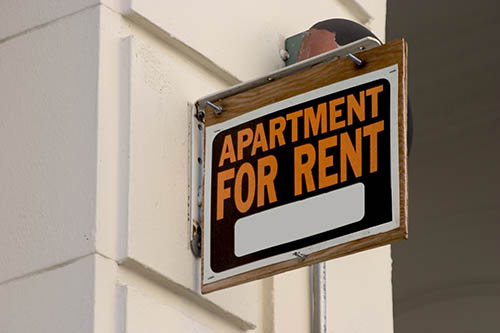 Trusting another individual with your property can be nerve-wracking because it’s difficult to gauge how well they’ll care for their home from a viewing and rental application alone. However, there are several steps you can take to help ensure that you select responsible tenants that will take good care for your property while they live there.
Trusting another individual with your property can be nerve-wracking because it’s difficult to gauge how well they’ll care for their home from a viewing and rental application alone. However, there are several steps you can take to help ensure that you select responsible tenants that will take good care for your property while they live there.
1. Make Your Home Desirable
When creating your rental listing, show your property at its absolute best and list its attractive features. The listing should be well written with proper capitalization and full sentences, even if it’s only going on Craigslist. Include plenty of photos that are staged nicely to show the full potential of the home both inside and out.
If you want the best applicants, strive to be the best property! You need to attract tenants who are looking for a home rather than a crash pad.
2. Have A Thorough Application Process
Don’t be afraid to ask for in-depth information from your applicants. The more you know about them the more you can assess what kind of a tenant they’ll be. An application should ask for:
– full name
– the applicant’s job & their supervisor
– their income
– current address
– government identification (i.e. a photocopy of their driver’s license)
– next of kin or an emergency contact
– previous landlord references
– any additional info you think is necessary
3. Check References
One of the most important things you can do when choosing a tenant is check their references. At least one reference should be a past landlord, and it’s great to contact a current employer as well. Favor applicants who can prove they’ve been a good renter in the past and who seem to have reliable employment.
When calling references have a prepared list of questions. For past landlords you’ll want to ask about their cleanliness, if there was any damage to the property, noise complaints, or missed rent. When speaking to an employer, make sure to ask how long they’ve been working there, whether they’re a reliable worker, whether they’re respectful, and if they can see them continuing to work there for the long-term.
4. Meet Them!
Always meet potential tenants in person. See if they have a pleasant demeanor, if they’re easy to talk to and are polite to you, and whether they seem to take care of themselves. Trust your gut, if you have a bad feeling about someone then it may be best to keep looking.
Need more advice on income properties? Contact a your trusted real estate professional today.
 Trading land like a billionaire relies on three simple premises. The first one is to acquire the land for cheap. The second one is to never intend to sell it. The third one is, if you trade it, trade up.
Trading land like a billionaire relies on three simple premises. The first one is to acquire the land for cheap. The second one is to never intend to sell it. The third one is, if you trade it, trade up. Houses for a dollar. Millions (perhaps billions) in tax incentives. Reclaiming contaminated land. Partnering with Walmart to build town centers. What do all of these things have in common? They are examples of exciting redevelopment opportunities in different parts of America.
Houses for a dollar. Millions (perhaps billions) in tax incentives. Reclaiming contaminated land. Partnering with Walmart to build town centers. What do all of these things have in common? They are examples of exciting redevelopment opportunities in different parts of America. Real estate may be one of the most important things that you will ever invest in, but it can also be a useful means of increasing your financial well-being. If you’re getting into the real estate game and are wondering how you can make use of investing in homes to improve your net worth, here are three ways you can successfully work towards a real estate investment portfolio that will make you proud.
Real estate may be one of the most important things that you will ever invest in, but it can also be a useful means of increasing your financial well-being. If you’re getting into the real estate game and are wondering how you can make use of investing in homes to improve your net worth, here are three ways you can successfully work towards a real estate investment portfolio that will make you proud. With approximately one million people having purchased vacation homes in the last year, this type of residence is gaining popularity for those who are interested in a home in a beach setting or a vacation hot spot. However, while a second home can seem like a great purchase and solid investment opportunity, there are different requirements that go into this type of purchase. If you’re considering a vacation home, you may want to be aware of the following financial factors.
With approximately one million people having purchased vacation homes in the last year, this type of residence is gaining popularity for those who are interested in a home in a beach setting or a vacation hot spot. However, while a second home can seem like a great purchase and solid investment opportunity, there are different requirements that go into this type of purchase. If you’re considering a vacation home, you may want to be aware of the following financial factors.